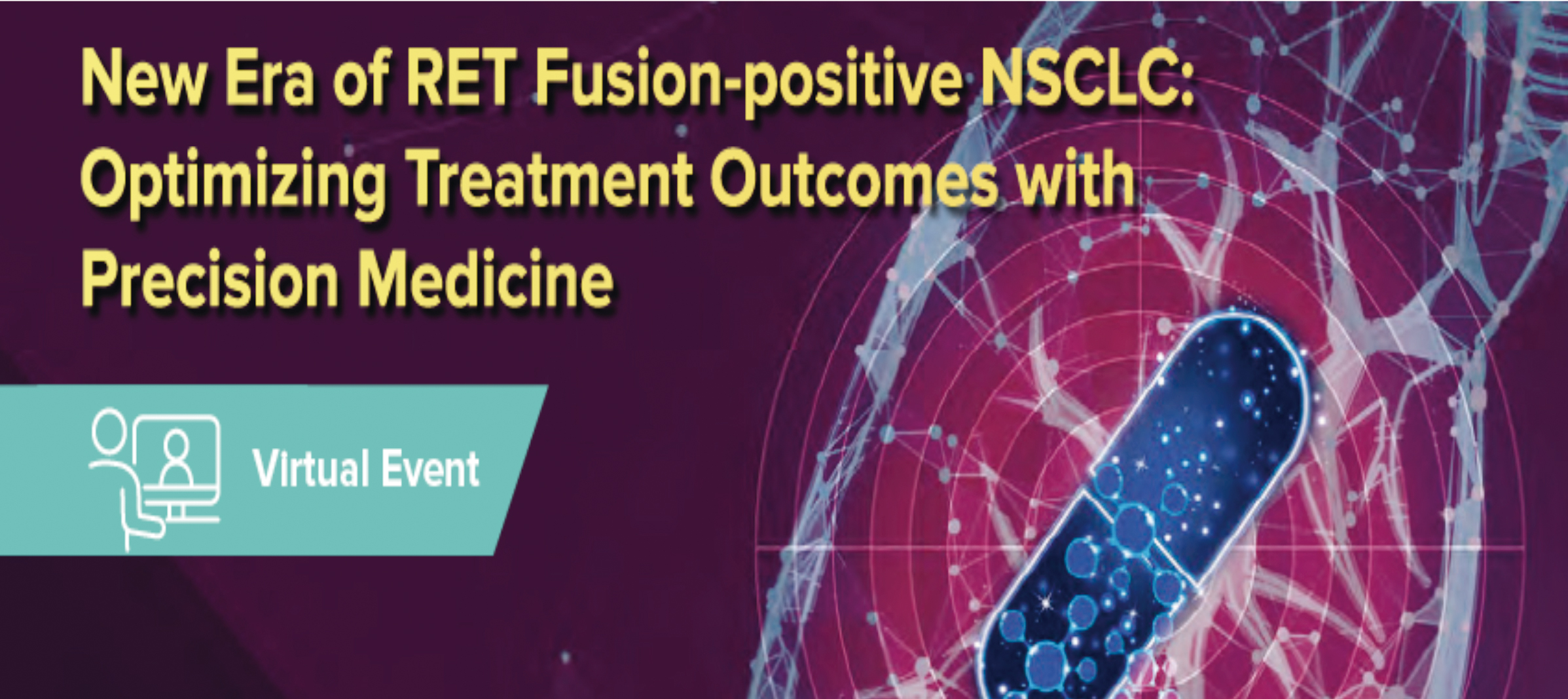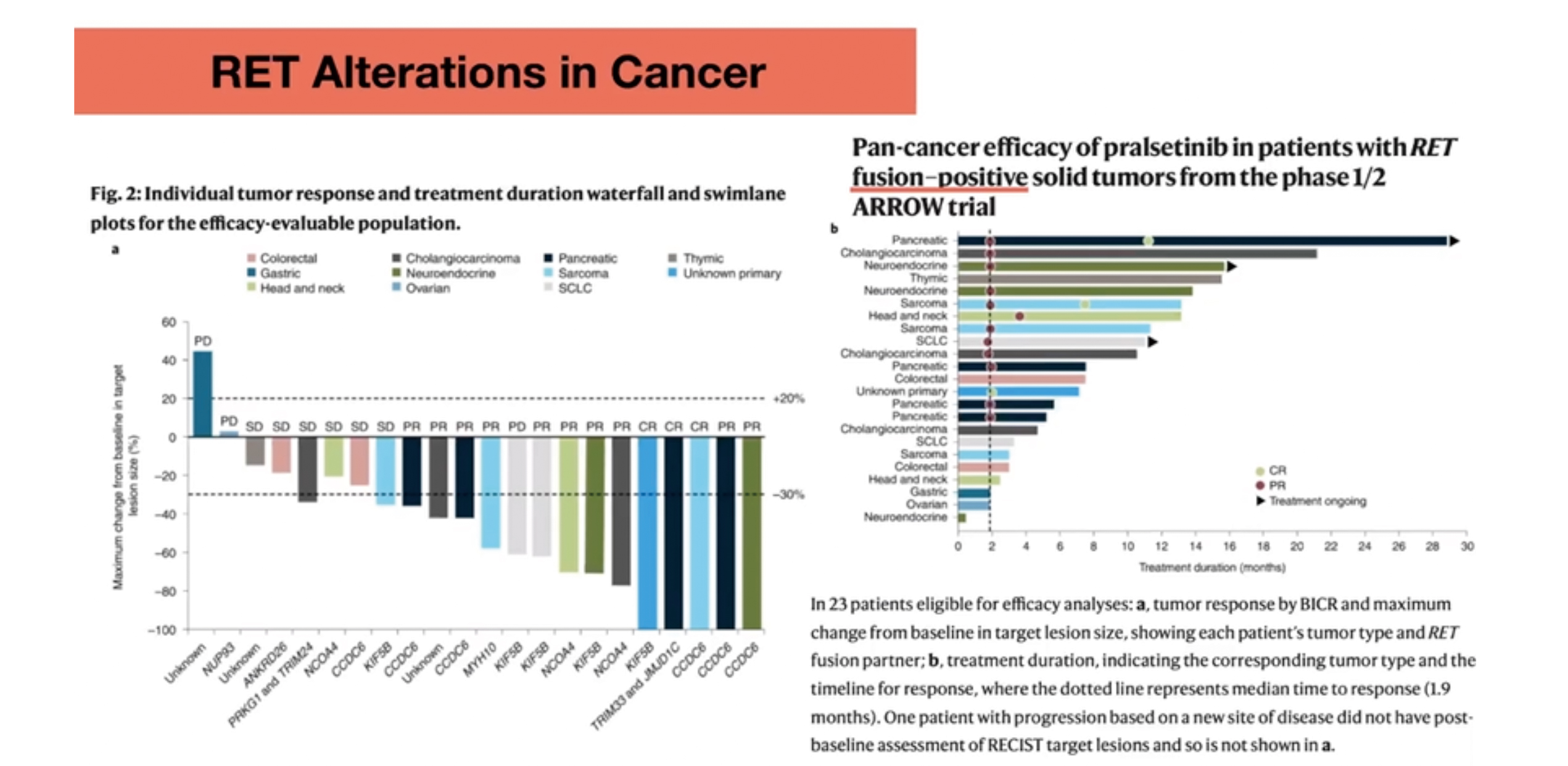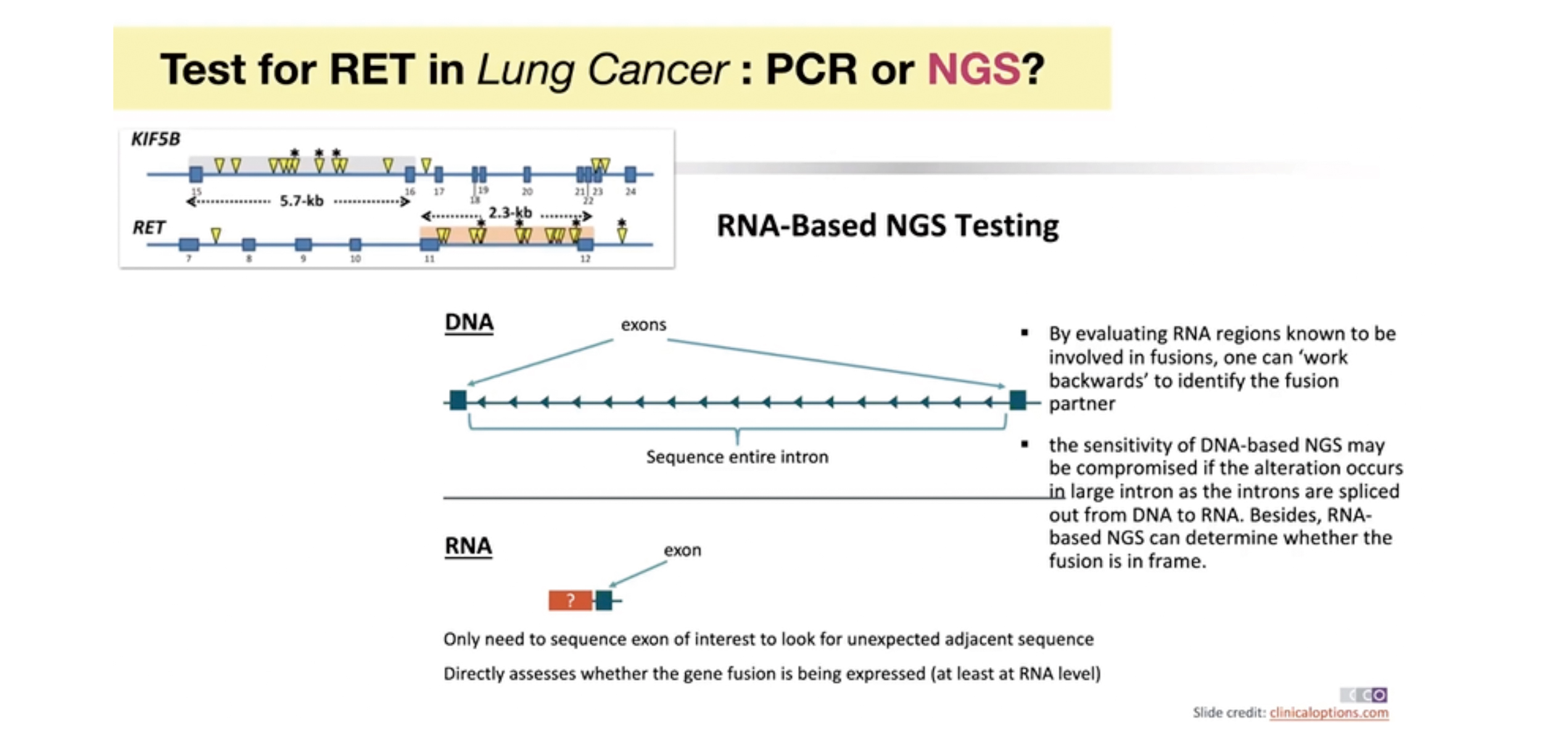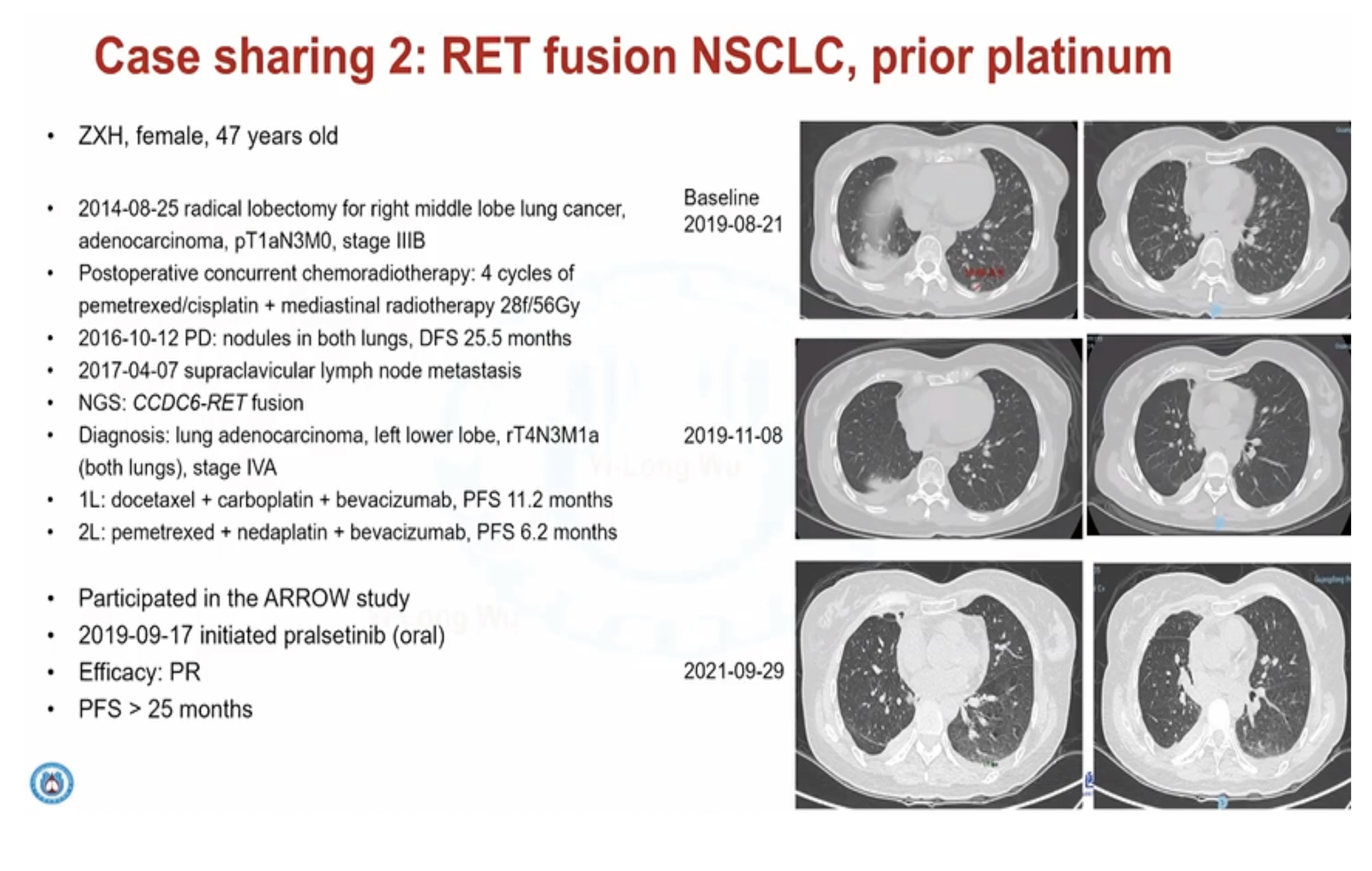
RET rearrangements are oncogenic drivers in multiple tumour types and are known to occur in 1–2% of NSCLC patients. Remarkably, standard therapeutic regimens provide limited benefit for NSCLC patients with RET fusion-positive tumours, and the outcomes with immunotherapy in these patients are generally poor. This hence represents a substantial global disease burden.
On 22-Oct 2022, an online symposium titled “New Era of RET Fusion-positive NSCLC: Optimizing Treatment Outcomes with Precision Medicine” was successfully organised. In the event, renowned clinicians and scholars from both Hong Kong and the mainland China offered lectures on evidence-based testing strategies to detect RET fusions and mutations, and the efficacy and safety of highly selective RET inhibitor in NSCLC with RET Fusion. Of note, the findings in recent clinical trials, which demonstrated the efficacy of pralsetinib in patients with advanced RET fusion-positive NSCLC, were reviewed and discussed. Essentially, it was advocated in the event that appropriate and timely identification of the presence of RET fusion is a key step towards effective therapies, and selective RET inhibitors, such as pralsetinib, have been demonstrated to improve outcomes of RET-positive NSCLC in both clinical trials and in real-world settings.
The role of RET in oncogenesis was discussed

The clinical performance of diagnostic tests for RET was reviewed

Tumour shrinkage yielded by pralsetinib in treatment-naïve and pretreated patients with RET fusion–positive metastatic NSCLC in the ARROW study

Clinical case sharing on treatment with pralsetinib in patient with RET fusion-positive NSCLC





